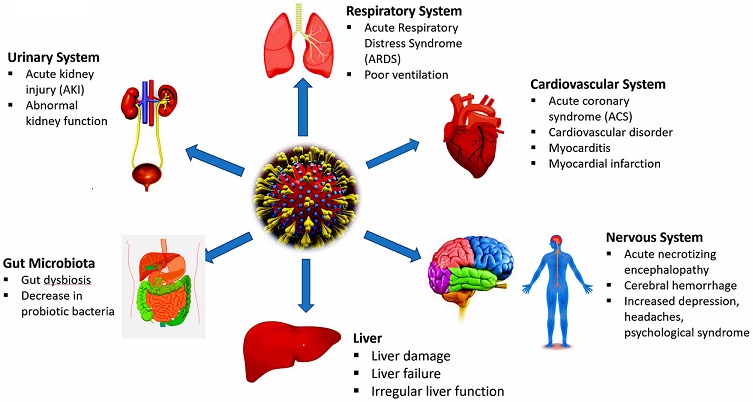Nikhil Prasad Fact checked by:Thailand Medical News Team Nov 09, 2025 3 months, 4 days, 23 hours, 20 minutes ago
Medical News: SARS-CoV-2’s Secret Ability to Mutate Within Human Organs
Scientists have made a remarkable discovery about how SARS-CoV-2 behaves inside the human body. A new study examining tissues from a fatal COVID-19 case found that the virus can evolve and adapt differently within various organs, effectively creating unique genetic versions of itself. This unusual behavior, known as tissue tropism, shows how the virus may persist in the body long after the initial infection and possibly contribute to long COVID.
 Hidden SARS-CoV-2 Viral Evolution Inside the Human Body
Hidden SARS-CoV-2 Viral Evolution Inside the Human Body
The study was conducted by researchers from the National Institutes of Health Clinical Center, the National Cancer Institute, and collaborating universities including the University of Pittsburgh, Emory University, and the University of Louisville. According to this
Medical News report, the team analyzed 27 different tissues collected during an autopsy of a patient who had a primary immune deficiency and died from respiratory failure after a long battle with COVID-19.
Different Viral Mutations Found in Separate Organs
The scientists discovered that SARS-CoV-2 was present in multiple organs—including the brain, heart, kidneys, and eyes—and that each organ contained slightly different viral genetic codes. These distinct genotypes were concentrated mainly in the spike protein, the part of the virus that allows it to attach and enter human cells.
Using advanced sequencing and molecular simulations, the researchers found mutations in key regions of the spike’s receptor-binding domain, such as K417R, G446V, S477N, and Q493K. These changes made the spike protein more stable and improved its ability to bind to human ACE2 receptors, making it more efficient at infecting cells. Some of these mutations, like G446V and Y453F, were previously linked to antibody resistance in Delta infections, suggesting that the virus can evolve ways to bypass immune defenses inside certain organs.
The Virus Creates Mini Ecosystems Inside the Body
The findings also showed that the virus did not behave uniformly throughout the body. Instead, it formed distinct “compartments” where unique viral populations developed. Tissues from the lungs, heart, and gastrointestinal tract shared some mutations, while those from the brain, eyes, and nasal passages had different variants.
This tissue-specific adaptation could explain why long COVID symptoms vary so widely—because the virus may evolve differently in different tissues, each influencing various organ systems. Importantly, the team’s analysis revealed that the viral loads in many of these organs were similar to those seen in acute infections, even though the patient had been infected for months.
Implications for Immunocompromised Patients
The patient studied had a weakened immune system due to a rare condition called chronic granulomatous disease and was on daily immunosuppressants. This lack of strong immune pressure
may have allowed SARS-CoV-2 to replicate continuously, giving it time to experiment with mutations and adapt to new tissues.
This raises major concerns for immunocompromised individuals, who may unknowingly harbor viral variants that evolve and spread within their bodies. The study also warns that such persistent infections could be a breeding ground for new SARS-CoV-2 variants with altered characteristics or drug resistance.
Why This Discovery Matters
This groundbreaking research offers the strongest evidence yet that SARS-CoV-2 can establish hidden reservoirs in the human body where it continues to mutate and survive. These reservoirs may later reactivate and contribute to prolonged illness or potentially enable new variant emergence.
Understanding how the virus diversifies inside human tissues will be vital for improving treatments for long COVID and for managing infections in immunocompromised patients. The study also reinforces the need for continued monitoring of chronic cases to prevent the evolution of dangerous new viral strains.
The study findings were published in the peer reviewed Journal of Virology.
https://journals.asm.org/doi/10.1128/jvi.00857-25
For the latest COVID-19 News, keep on logging to Thailand
Medical News.
Read Also:
https://www.thailandmedical.news/articles/coronavirus
https://www.thailandmedical.news/articles/long-covid
